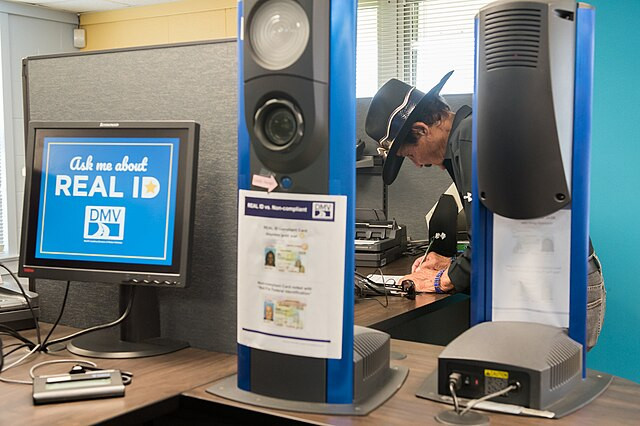Travelers without a Real ID or equivalent federally accepted identification will still be allowed to fly starting May 7, but should expect additional screening measures at U.S. airports, federal officials confirmed Tuesday. The deadline marks the long-postponed enforcement of the Real ID Act, which was passed in 2005 following the 9/11 terrorist attacks to bolster the security of state-issued identification documents.
Homeland Security Secretary Kristi Noem told a Congressional panel that although travelers who lack Real ID-compliant identification will not be barred from flying, they may experience procedural delays. "But people will be allowed to fly," Noem said. "We will make sure it's as seamless as possible."
Transportation Security Administration officials said approximately 81% of passengers are already using Real ID-compliant or alternative forms of identification, such as passports or Department of Homeland Security (DHS) Trusted Traveler cards. "We do not expect there to be any inconveniences or wait times at all," said TSA spokesperson Daniel Velez.
Despite that confidence, Velez noted that travelers without a Real ID will be identified ahead of time and redirected into separate lines for additional verification. "We're going to be pulling aside and identifying individuals who do not have a REAL ID compliant ID and pulling them out of line," he said.
At Boston's Logan Airport, Velez said the goal is to minimize disruption for compliant passengers while ensuring non-compliant travelers are still processed appropriately. He encouraged travelers to arrive earlier than usual - in some cases, up to an hour earlier - to account for the changes.
A Real ID is a state-issued driver's license or identification card that meets federal security standards and is typically marked with a star in the upper right corner. Acceptable alternatives include U.S. passports, Enhanced Driver's Licenses (EDLs) issued by select states, and DHS Trusted Traveler cards such as Global Entry or NEXUS.
TSA has released a full list of acceptable identification forms and continues to encourage travelers to confirm their documents before arriving at the airport. Children under 18 are not required to provide identification for domestic flights.
The Real ID Act, first passed in 2005, has faced multiple delays in implementation. Its enforcement date was most recently pushed to May 7, 2025. Federal and state agencies have urged Americans to upgrade their IDs, but implementation has varied widely across states. As of Monday, 58% of Massachusetts residents were Real ID compliant, according to the state's Registry of Motor Vehicles.
Clear, the biometric identification company, is advising its 7.5 million members to upload their U.S. passports into the app to ensure they are prepared. "Travelers may experience some confusion at TSA checkpoints," said CLEAR executive vice president Kyle McLaughlin, who recommended bringing a passport as a precaution.
"Part of the confusion with Real ID is that it's been going on for so long," said AAA spokesperson Aixa Diaz, noting that many travelers may still not understand the difference between Real ID and standard state licenses. "We've been talking about it for literally 20 years."




